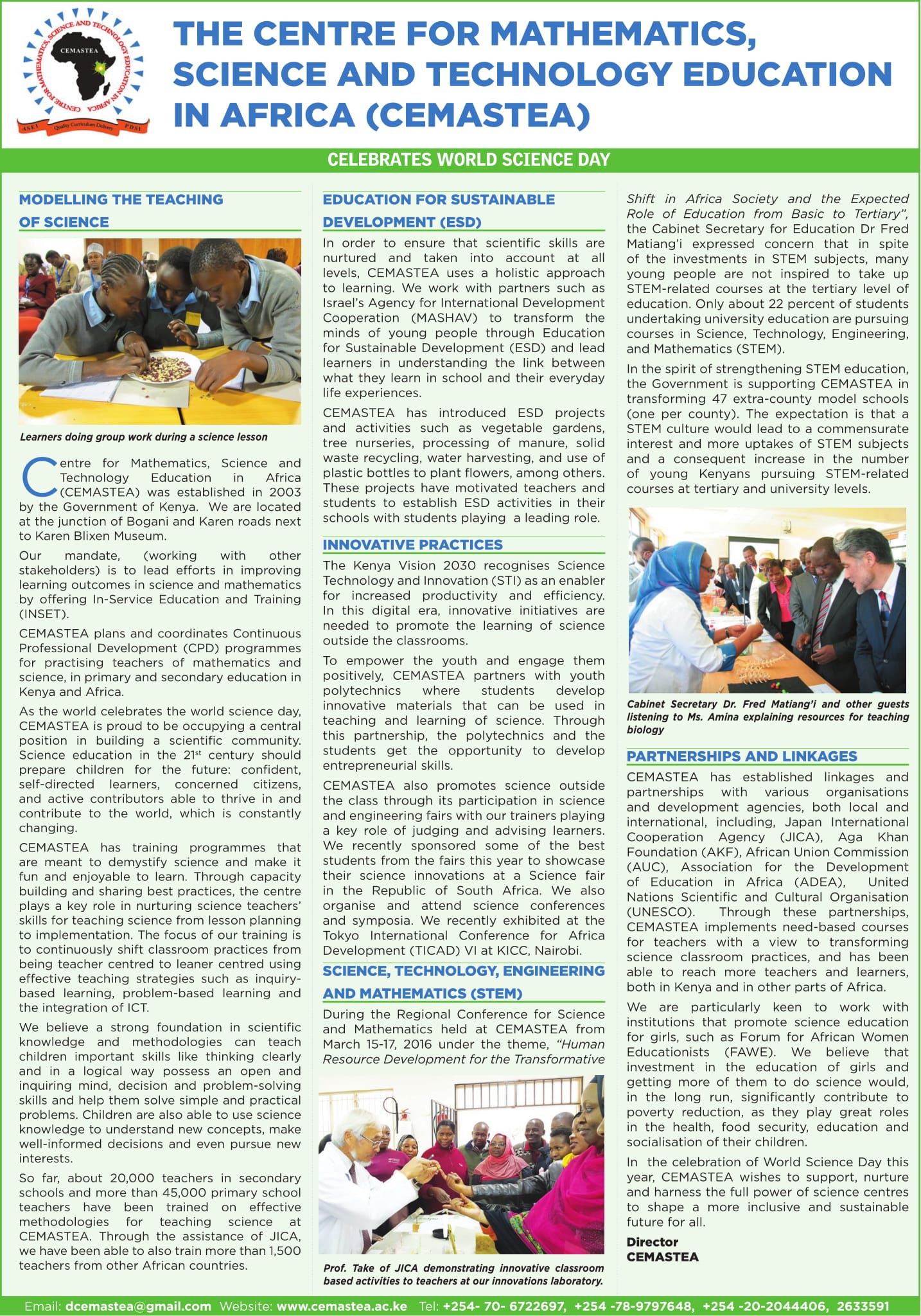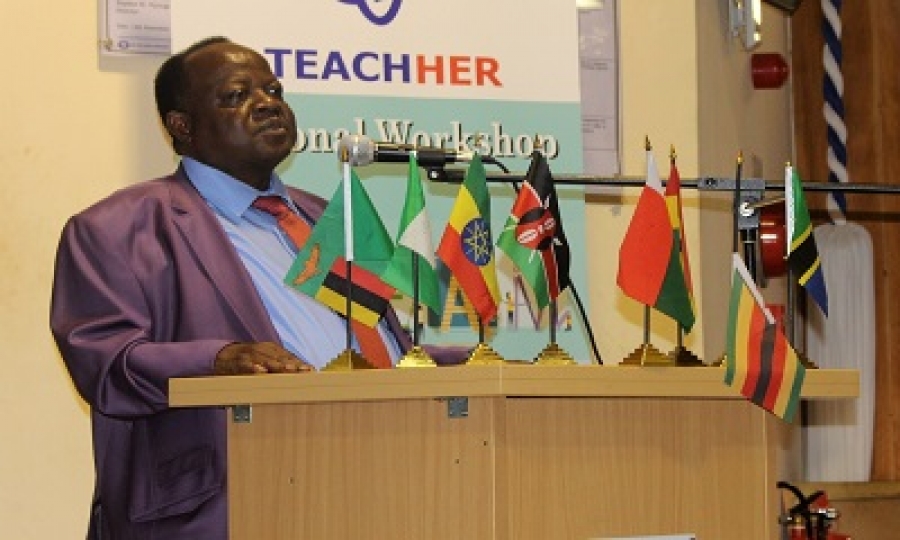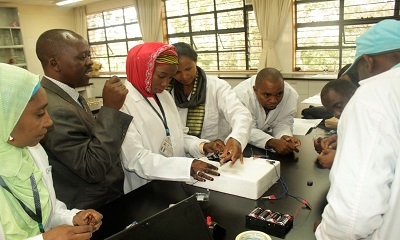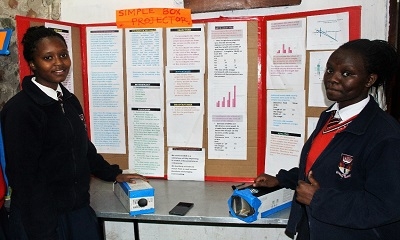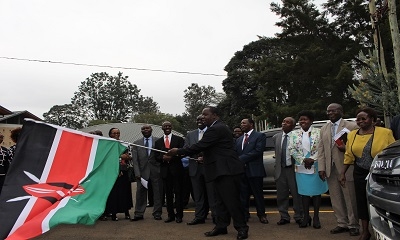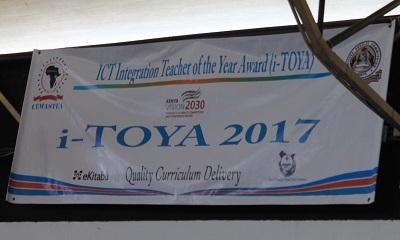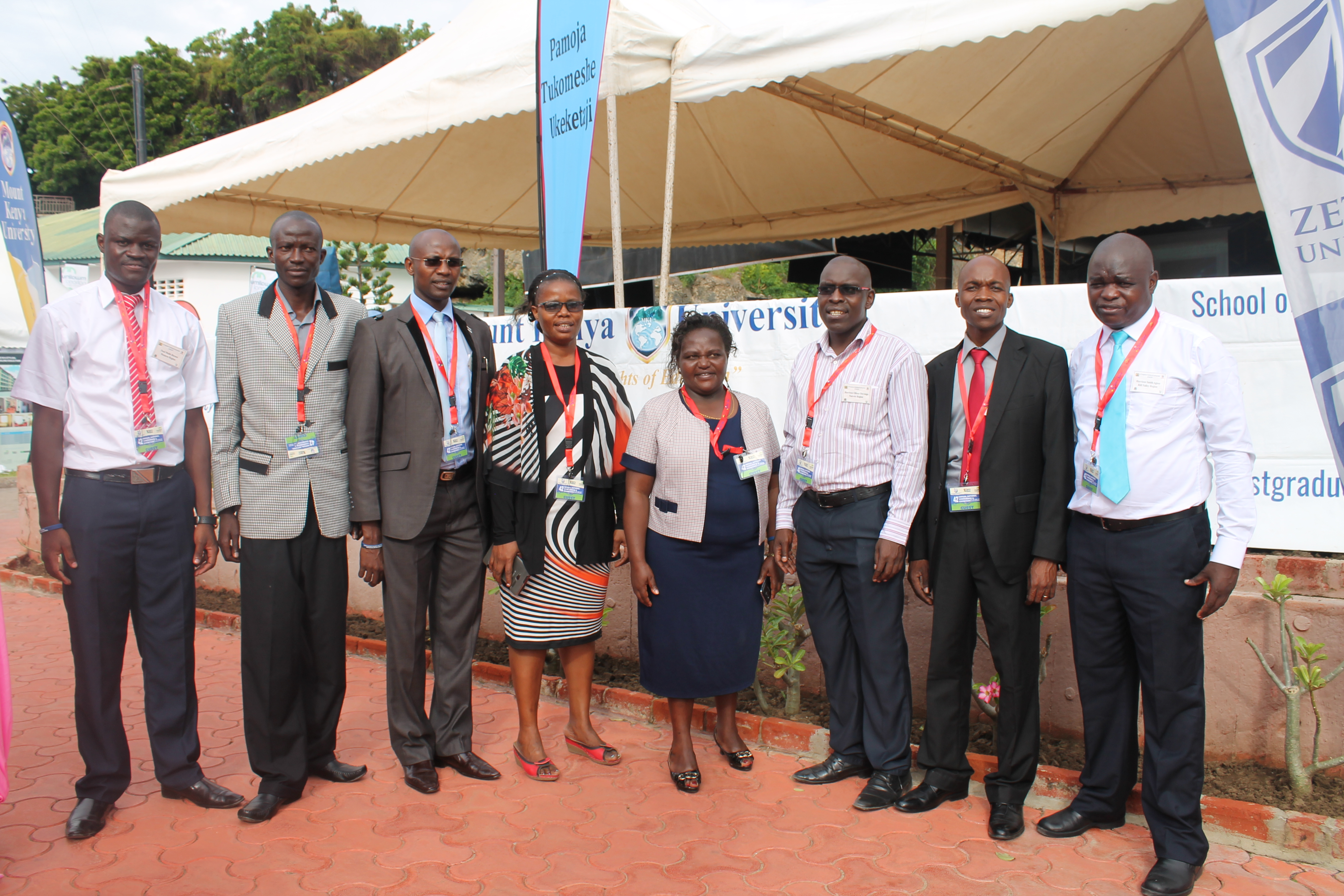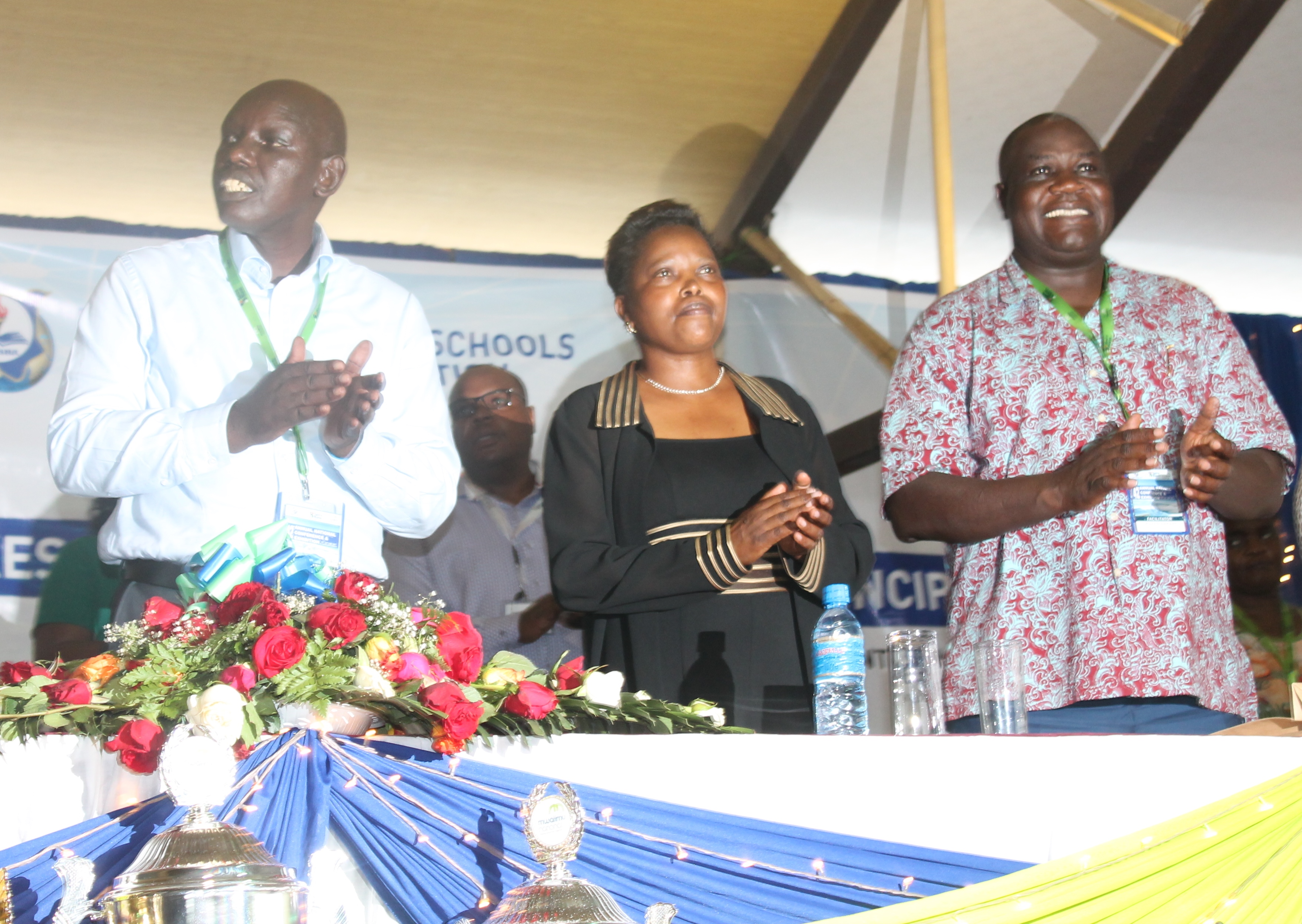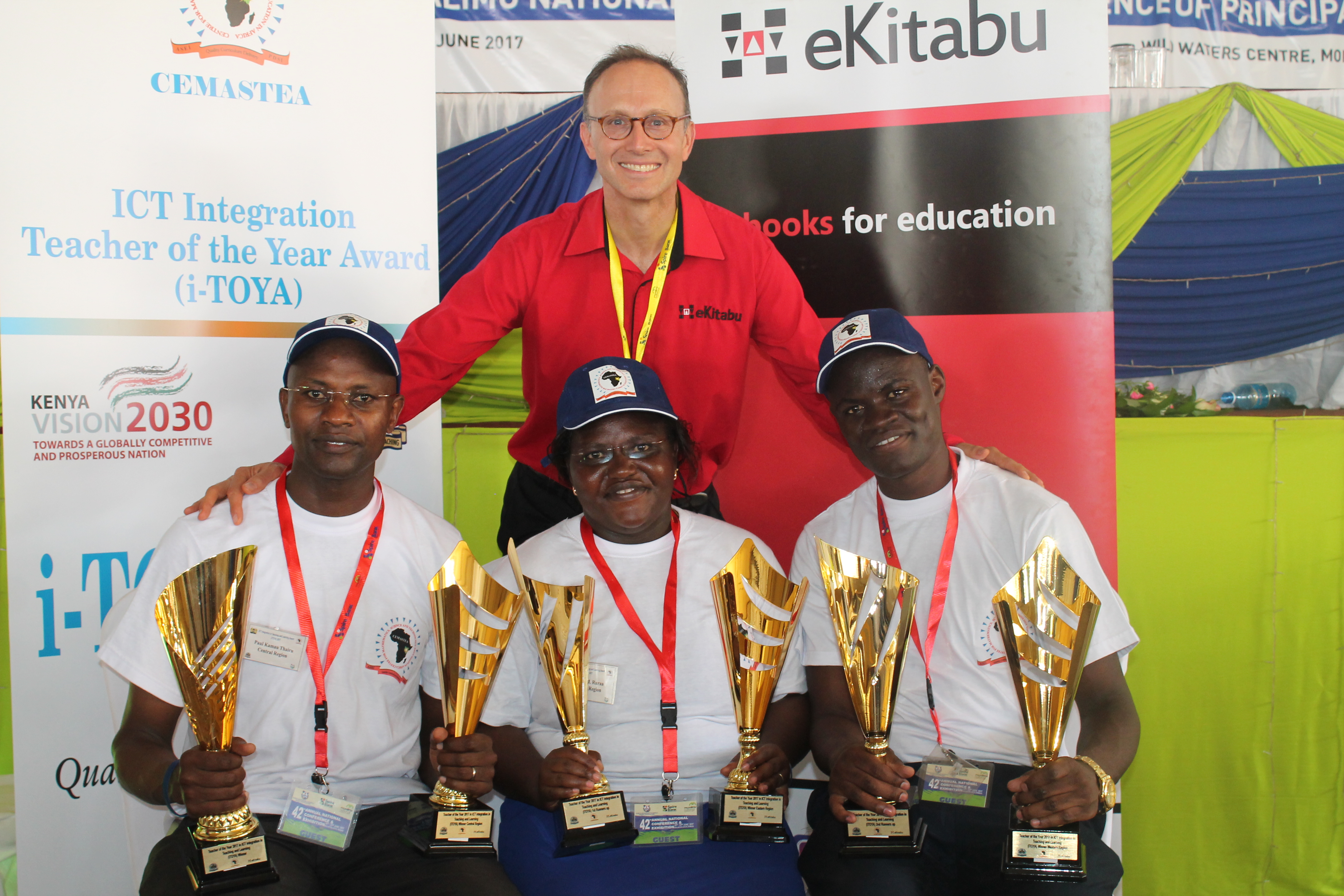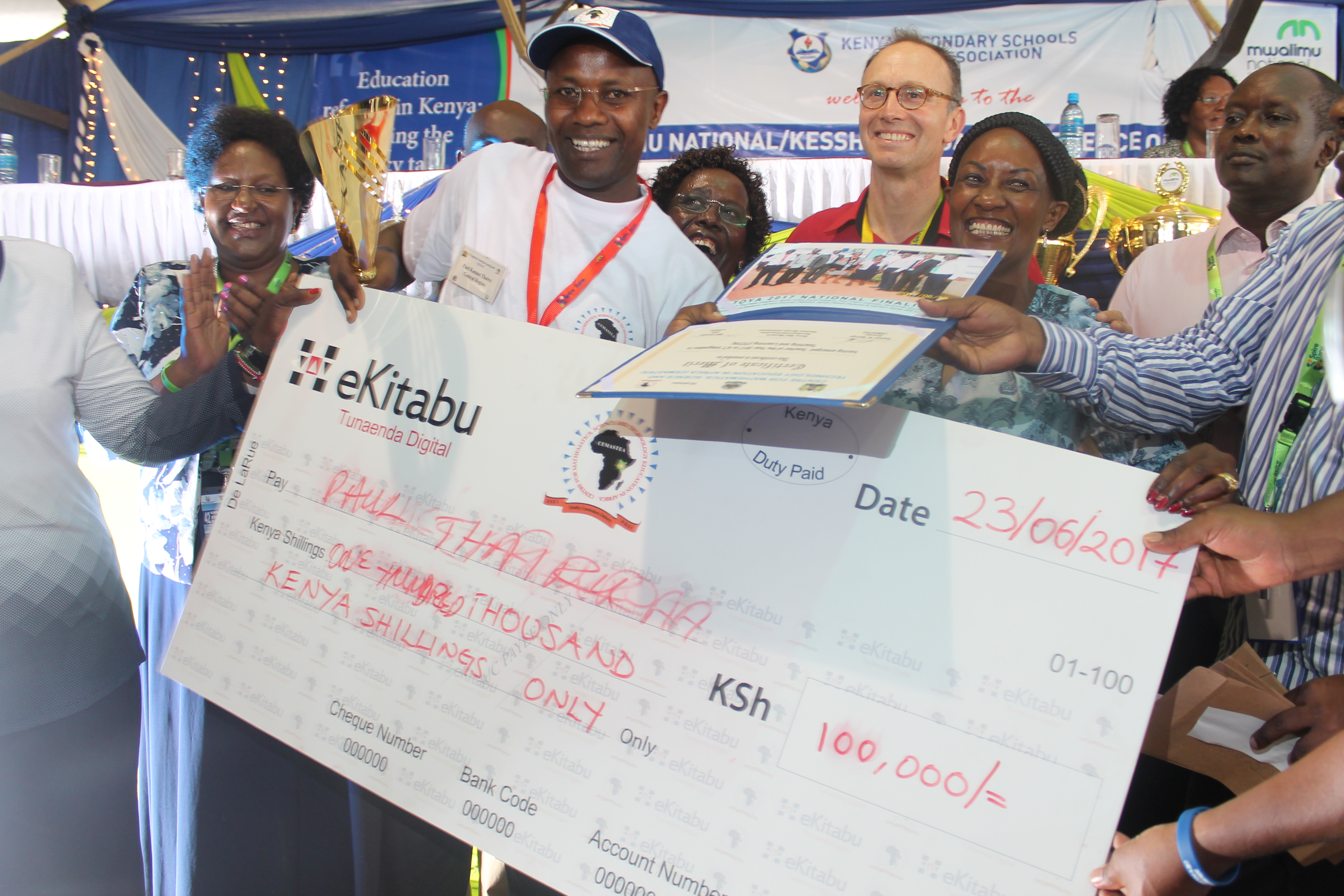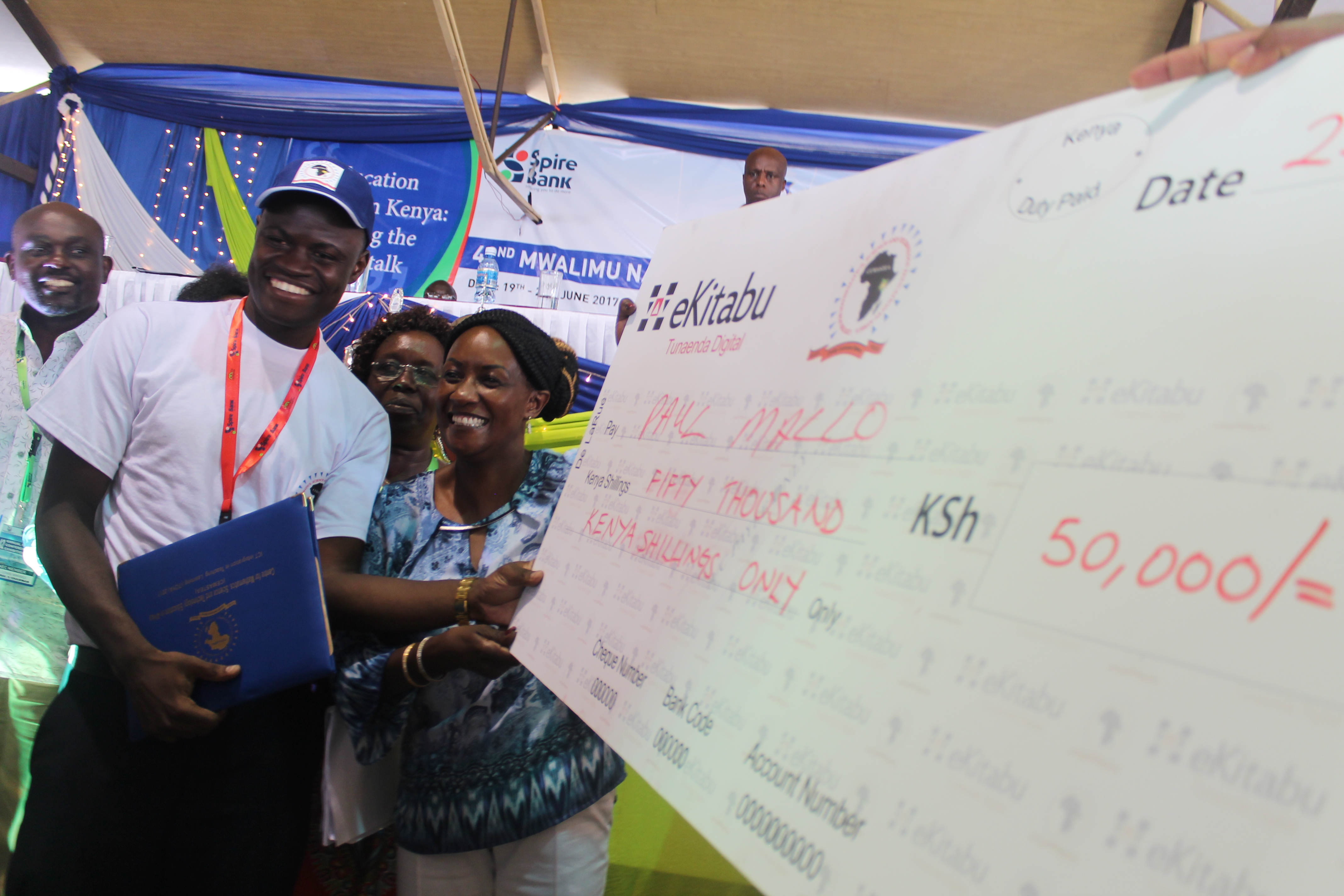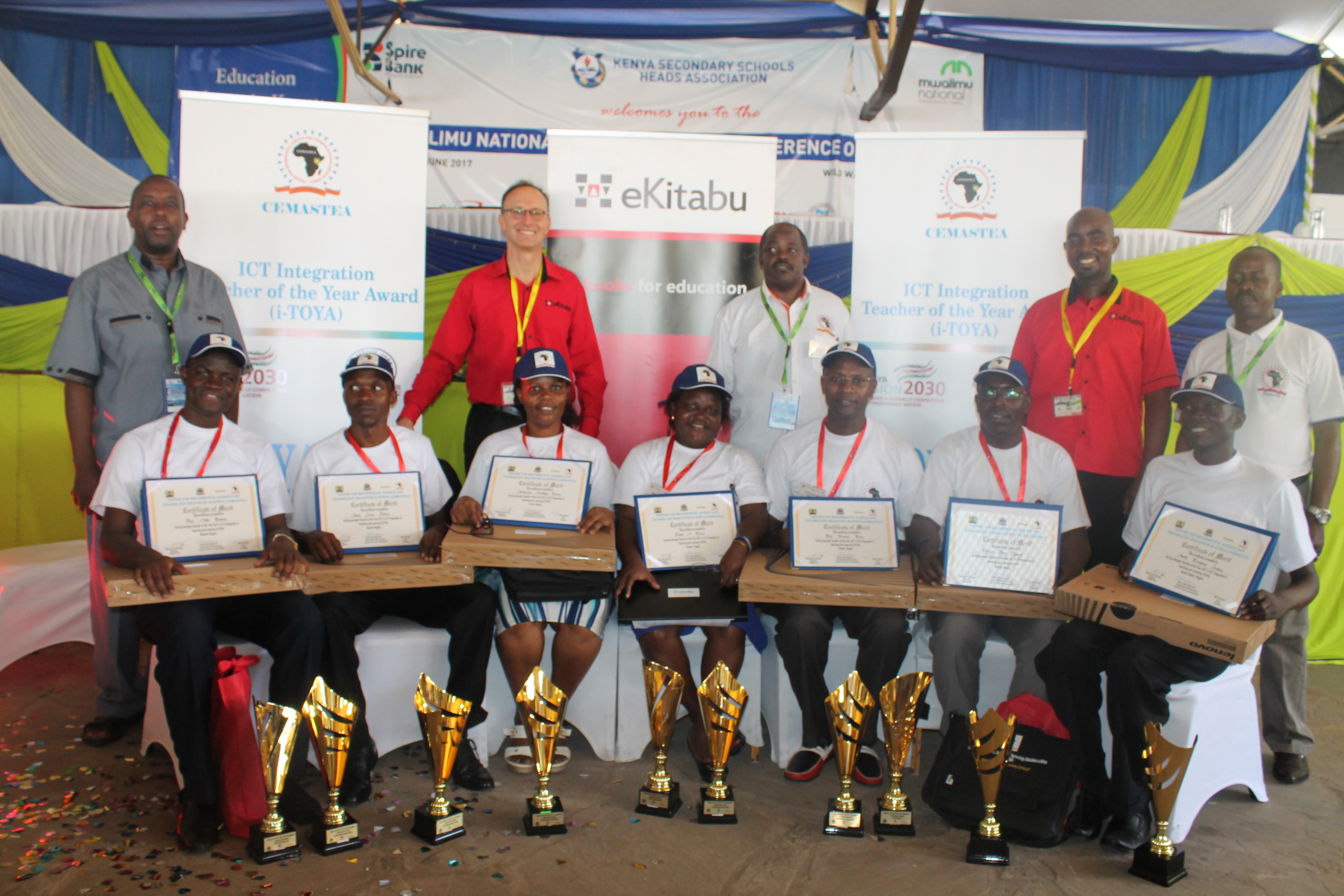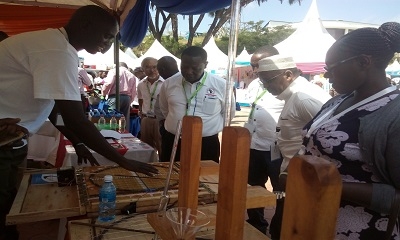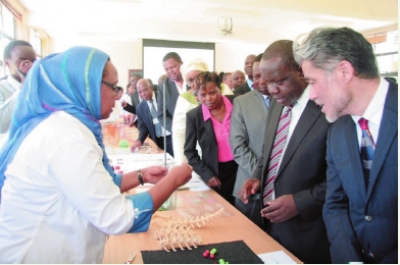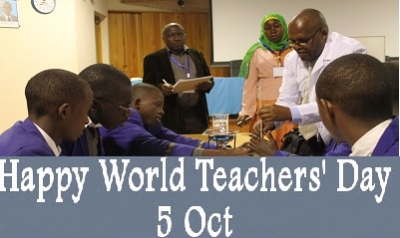CEMASTEA News 174
Children categories
By Joe Ombuor | Published Thu, August 3rd 2017 at 11:21, Updated August 3rd 2017
NAIROBI, KENYA: Teachers have been urged to make use of digital social media platforms such as WhatsApp, Facebook and others to create networks to learn from each other while sharing different challenges at national and regional levels.
Kenya’s ambassador and permanent representative to UNESCO Prof. George Imbanga Godia said during regional teachers training programme in Nairobi that UNESCO through its convening power and multi- sectoral offices in Africa had the capacity to support such networks.
Prof. Godia was officially closing the second Teacher regional teacher training for Africa at the Centre for Mathematics, Science and Technology Education in Africa (CEMASTEA) that brought together 80 participants from 10 countries across the African continent.
“Teaching is a continuous learning process and I encourage you to continue learning from each other after workshops such as this one. Become TeachHer ambassadors and strive to share what you have learnt with your students and colleagues in your countries,” he said.
Prof Godia described Science, Technology, and Engineering, Arts and Mathematics (STEAM) activities and careers that fuel the TeachHer programme as key accelerators of socio economic development of nations.
He said Science, Technology and Innovation (STI) would continue to play an important role in transforming African economies from natural resource to industrial based. “This can only be achieved with significant investment in STEAM related careers, still marked by a shortage of girls and women.
Remarked Prof. Godia: “Women make up a paltry 30 per cent of the world’s researchers and are more under-represented in engineering fields globally.
He said the lack of women in technology sectors has significant socio economic consequences with women losing an important tool for personal and economic empowerment while countries lose developmental opportunities as a result.
Prof Godia said the TeachHer initiative that is a private public partnership between UNESCO, the US Government and other partners aimed at creating a master corps of educators equipped to deliver innovative hands-on instruction for adolescent girls, opening doors in an area where women are greatly unrepresented.
He said it behooved female teachers to serve as role models for girl students to raise their interest in STEAM at an early age. And advised fathers to encourage their daughters to take up science subjects leading to professional careers in technical fields. “Girls develop resolve when told by their fathers that they can challenge men in any discipline,” he said.
Prof. Godia announced that Kenya would next year host the first Pan African high level conference on Sustainable Development Goals (SDGs), courtesy of UNESCO.
Participants in the training were drawn from Kenya, Ethiopia, Madagascar, Nigeria, South Africa, Senegal, Tanzania, Zambia and Zimbabwe. It was the second such training since TeachHer was launched in 2016.
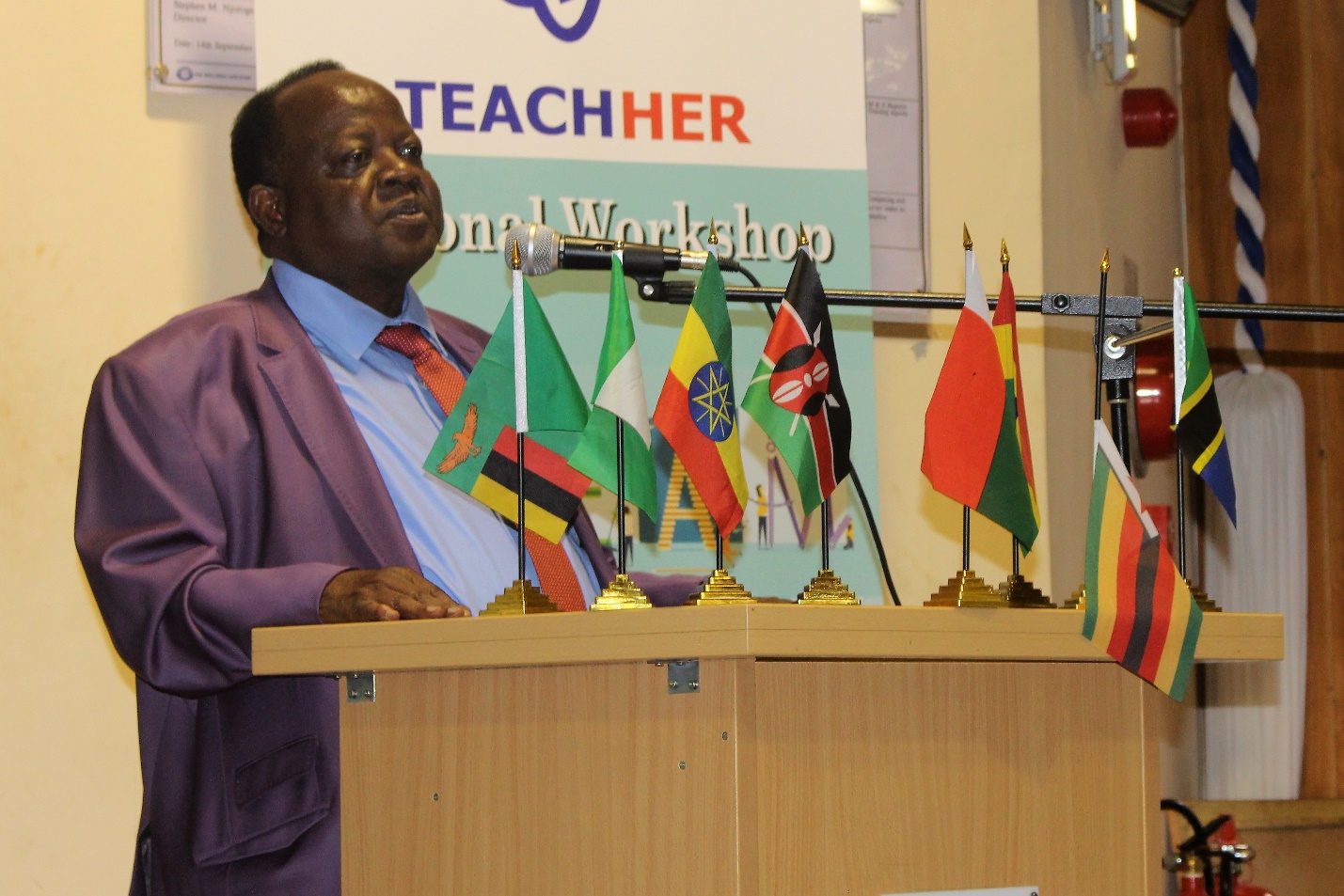
E. Prof. George Imbanga Godia was appointed as Ambassador and Permanent Delegate of the Republic of Kenya to UNESCO Paris speaking during the closing ceremony for the 2nd Teachher Training in Nairobi
By Joe Ombuor | Published Sat, July 29th 2017 at 17:46, Updated July 29th 2017
A regional teacher training forum in Nairobi has among other recommendations called for the use of female teachers as role models to help hone girls’ interest in science related subjects and subsequently, science oriented professions. The five-day training christened TeachHer brought together 80 male and female teachers from 10 African countries at the Centre for Mathematics, Science and Technology Education in Africa (CEMASTEA) in Karen. Calls were made for a deliberate effort to minimize the widely held but erroneous notion that science and technical disciplines are a preserve of the male gender.
A prototype known as ‘job shadowing’ that involves attaching interested girls under technical professionals to expose them to the field for brief periods was cited as an ideal affirmative action to influence their choice of scientific disciplines. “The girls are bound to learn and whet their interest in these male dominated areas while doing light duties such as organizing files or helping with clean up,” said Mr. Robert Masese, the Director of Secondary and Tertiary Education who officially opened the training on behalf of Education Cabinet Secretary Dr. Fred Matiang’i.
It was noted that fathers in particular have a key role to play in influencing their daughters into subjects exposing them to science based professions such as engineering, architecture, medicine and others. He local praised girls’ schools that had demystified science subjects including mathematics by competing effectively and beating boys’ schools, giving the example of Pangani Girls High School in Nairobi that is a unrivalled in Mathematics.
“We have schools like Kenya High School, a girl’s institution in Nairobi where wood work thought to be a sanctuary of boys features among the best performed subjects,” noted Mr. Masese.
He said time when women sat back and watched men take on technical challenges was long gone.
Dr Matiang’i in a speech read by Mr. Masese thanked the Paris based US mission to United Nations Educational, scientific and Cultural Organization (UNESCO) for funding the programme that would go a long way in improving Science, Technology, Engineering and Mathematics (STEAM) education for girls through learner centered teaching and learning practices.
He acknowledged the existence of a significant gender disparity in STEAM education that has to be narrowed in order to provide adequate and balanced work force for private and public sectors for rapid development. “We need to invest in preparing young women to take up 21st century STEAM careers,” said Dr Matiang’i.
Towards that end, disclosed Dr. Matiang’i, the ministry of education through the participation of CEMASTEA had rolled out a Science, Technology, Engineering and Mathematics (STEM) programme established in 94 model secondary schools, two each of 47 counties across the country. “The programme is expected to help activate, train, inspire and sustain more students particularly girls willing to enroll in STEAM fields,” said Dr Matiang’i.
The Director of CEMASTEA Mr. Stephen Njoroge hailed Kenya’s Ambassador and Permanent Representative to UNESCO Prof. George Godia who graced the occasion for lobbying to bring the second edition of TeachHer to Nairobi. He advised the beneficiaries to share their experience widely with colleagues in their respective countries.
Mr. Njoroge called on African nations to appreciate its intelligentsia. “Our nations must contrive ways to accommodate its intelligentsia instead of punishing them for possessing critical minds. That is important if manufacturing and technology are to take hold on the continent,” he noted.
The Director said Intelligent people were easily bored and should not be neglected if for reasons including impatience, they do not complete official education. “These in the West are the Bill Gates, Richard Branson and Steve Jobs of this world. Here, we waste instead of harness their brains,” said Mr. Njoroge.
Participants in the training were drawn from Kenya, Ethiopia, Madagascar, Nigeria, South Africa, Senegal, Tanzania, Zambia and Zimbabwe. It was the second such training since the first edition was launched last year in Addis Ababa, Ethiopia.
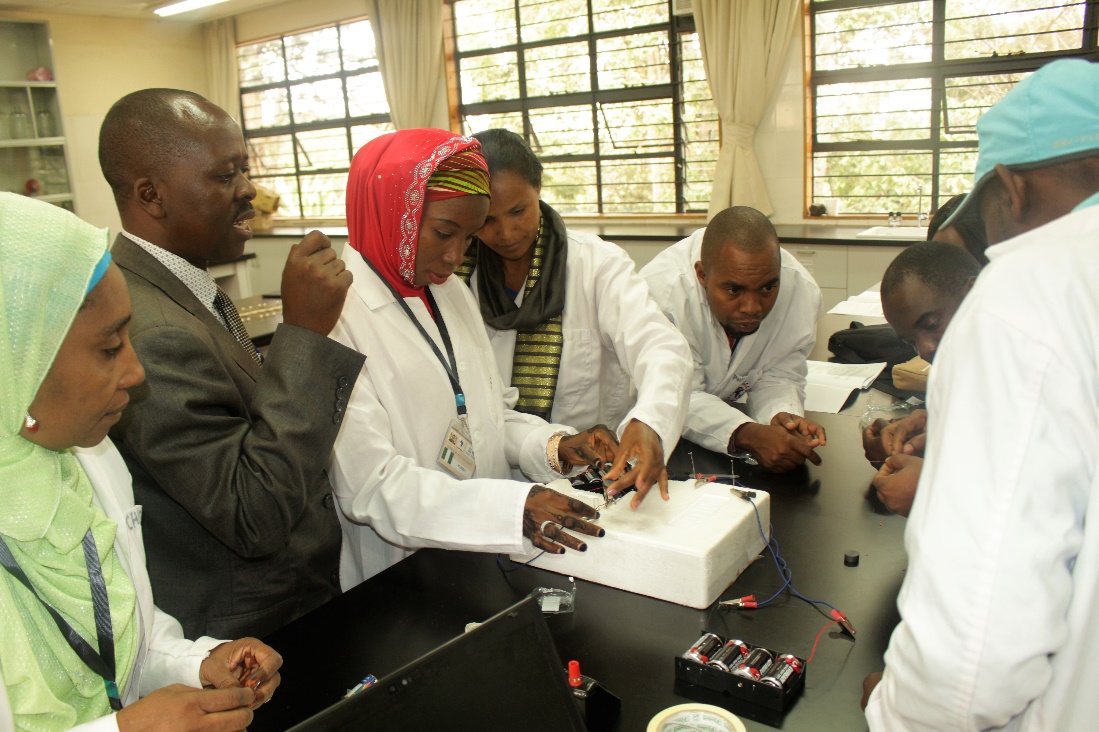
Participants taking part in a Physics activity at the 2nd Teachher Training workshop held CEMASTEA
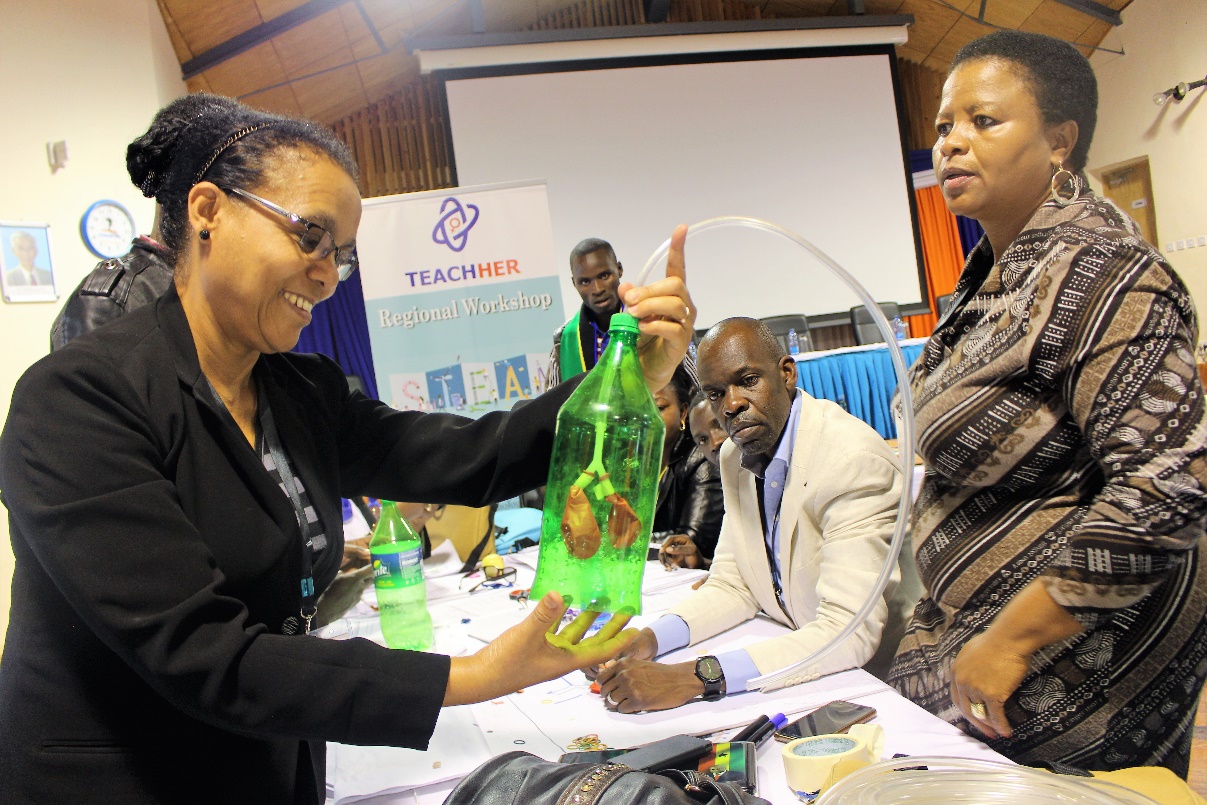
Participants taking part in a Biology activity at the 2nd Teachher Training workshop held CEMASTEA
Technical classrooms set for high schools
Special classrooms for technical skills will be established in selected secondary schools in an effort to promote innovation among students at an early age.
Dubbed the ‘Makerspace’, students pursuing science, technology, engineering and mathematics (STEM) subjects will be able to innovate and enjoy hands-on approach to teaching and learning.
This will enable them to carry out activities such as coding, 3D printing, laser cutting, soldering, electronics, robot building or robotics and wood work.
The plan is being fronted by the Centre for Mathematics, Science and Technology Education in Africa (CEMASTEA), a State agency, which initially promoted science and mathematics through teacher training courses.
The centre’s director, Stephen Njoroge, said the special classrooms will enable students to share resources and knowledge, work on projects and network.
“This is a space for students with a maker mindset where they can come together and create something out of nothing and explore their own interests,” said Mr. Njoroge.
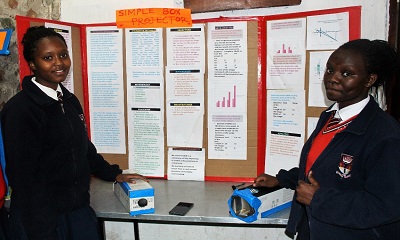 Ngara Girls students showing a simplified version of a projector during a school visit by participants from the 2nd TeachHer training
Ngara Girls students showing a simplified version of a projector during a school visit by participants from the 2nd TeachHer training
Concerted efforts by the Ministry of Education through Centre for Mathematics, Science and Technology in Africa (CEMASTEA) to increase the uptake of mathematics and science subjects in the country was boosted by distribution of STEM equipment to the first batch of STEM schools. 
Fred Matiang’i Cabinet Secretary for Ministry of Education is welcomed by Mr. Stephen Njoroge, Director CEMASTEA. The CS, was the chief guest during the launch of the 2nd batch of STEM schools and flagging off the STEM equipment for the 1st batch of STEM schools at CEMASTEA, Nairobi
Speaking at the ceremony, Mr. Stephen Njoroge, Director CEMASTEA, defined a STEM school as one that learners are interested in science, manages the resources that they have been provided with efficiently and one that has a program that encourages leaners to inculcate societal values. He further defined Science, Technology, Engineering and Mathematics (STEM) as an interdisciplinary facet that provides students with a hands-on experience. He urged principals to allow learners to interact with STEM equipment donated by the Ministry of Education or other partners.
Stephen Njoroge Director CEMASTEA
Dr. Fred Matiang’i, Cabinet Secretary for Ministry of Education, who was the chief guest commissioned the launch of the second batch of STEM schools and flagged off the distribution of equipment for the first batch of STEM schools.

Dr. Fred Matiang’i flags off the STEM equipment for the first batch of STEM schools at the foreground is the Director Mr. Njoroge CEMASTEA and senior education officers
The CS, commended CEMASTEA for saving and purchasing STEM equipment worth thirty- two million shillings. He further directed two hundred and fifty-eight million shillings set aside for science equipment in his ministry to be channeled to the CEMASTEA to purchase additional equipment for schools. The CS added that the equipment he was launching would go a long way in alleviating some of the problems principals encounter due to lack of equipment.
Dr. Fred Matiang’i hands over a list of items during the distribution of STEM equipment to Ms. Consolata Kimuya, Principal, Buruburu Girls High School at CEMASTEA
Dr. Matiang’i, challenged CEMASTEA to conduct monitoring and evaluation of the ninety-four schools that were being supported by the Ministry of Education and CEMASTEA and the impact they have within their communities.
Dr. Fred Matiang’i Cabinet Secretary for Ministry of Education speaking at CEMASTEA during the launch of the second batch of STEM Schools
The equipment purchased will be used as teaching and learning of STEM subjects. Some of the items include Hoffmans apparatus, fractionating columns, voltmeters, Cathode Ray Oscilloscope (CRO), Binocular light microscopes, potometers, scientific calculators, mobile graph boards, set of mathematical shapes plus geoboard, LCD projectors, laptops and textbooks. Principals from the 1st batch of STEM schools were in hand to receive the equipment. This equipment will impact more than 43,000 learners across Kenya.
Nancy Nui, Dean of Mathematics, CEMASTEA (right) hands over STEM equipment to Mrs.Mary Principal Kapropita Girls High School
CEMASTEA in conjunction with, e-Kitabu, TSC and KESSHA held a competition for the most innovative teacher who integrates ICT in teaching and learning. ICT Integrated Lesson Teacher of the Year Award (I-TOYA) held in Mombasa during the annual Kenya Secondary School Heads Association. The eight finalists were drawn from the eight regions namely; Nairobi, Coast region, Eastern region, North-Eastern region, Western region, Rift valley region, Central region and Nyanza region.
The Eight Regional Finalists
From left: Mr. Paul Mallo (Western), Appollo Justus (North Eastern), Mr. Paul Thairu (Central), Ms. Jemimmah Mutethya (Coast), Ms. Eunice Ruraa (Eastern), Mr. Harrison Onyango (Nairobi), James Okewa (Nyanza) and Mr. Harrison Agosa (Rift Valley)
This was the first time the i-TOYA competition was being held at the national levels alongside Teacher of the Year Award (TOYA) and Principal of the Year Award (POYA). The regional winners were subjected to an aptitude test before making their presentations in the presence of honorable Dr. Richard Belio Kipsang, Principal Secretary Education, Ministry of Education Science and Technology.
Richard Belio Kipsang, PS Education dance alongside PS State Department of Vocational Training Ministry of Education Dr Dinah Mwinziand Kenya Institute of Curriculum Development (KICD) Director Dr. Julius Jwan.
The presentations were done interchangeably with the TOYA and POYA which took most part of the day. The PS Education, Dr. Richard Belio Kipsang applauded the winners for the far they have reached in the competition and encouraged other teachers to incorporate the use of ICT tools and skills in teaching and learning. The presentation attracted many teachers from schools all over Kenya and i-TOYA regional winner got positive reactions on the good work they are doing to integrate ICT in their lesson.
Mr. Will Clurman, Co-Founder & CEO of e-Kitabu, one of the sponsors compared i-TOYA to a baby that has been born and will soon be running seeing the turn out of the 2017 competition taking into consideration its first time the competition is being held.
Mr. Will Clurman, Co-Founder & CEO of e-Kitabu with the National i-TOYA winners
The winner of the i-TOYA was Mr. Paul Kamau Thairu from Loreto Kiambu, Central region, who was awarded a laptop and Kshs. 100,000, first runners up was Ms. Eunice M. Ruraa from Kyeni girls, Eastern region who was also awared a laptop and Ksh. 70,000 and finally for second riunners up Mr. Paul Mallo Barasa, Lwanya secondary, western region was awarded a laptop and Kshs. 50,000.
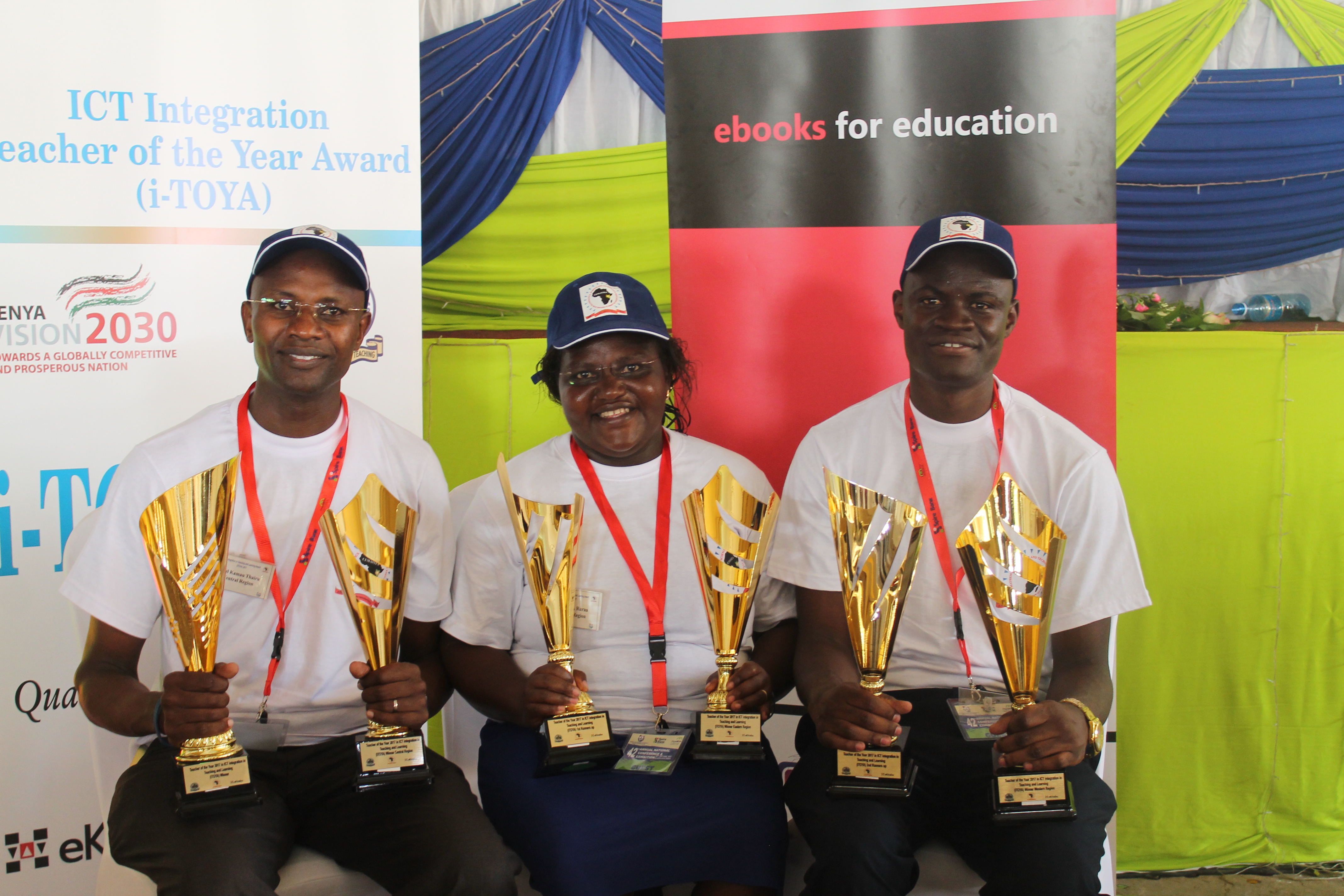
From right: Mr. Paul Kamau Thairu, winner i-TOYA, Ms. Eunice M. Ruraa, First runners up and Mr. Paul Mallo Barasa, Second runners up.
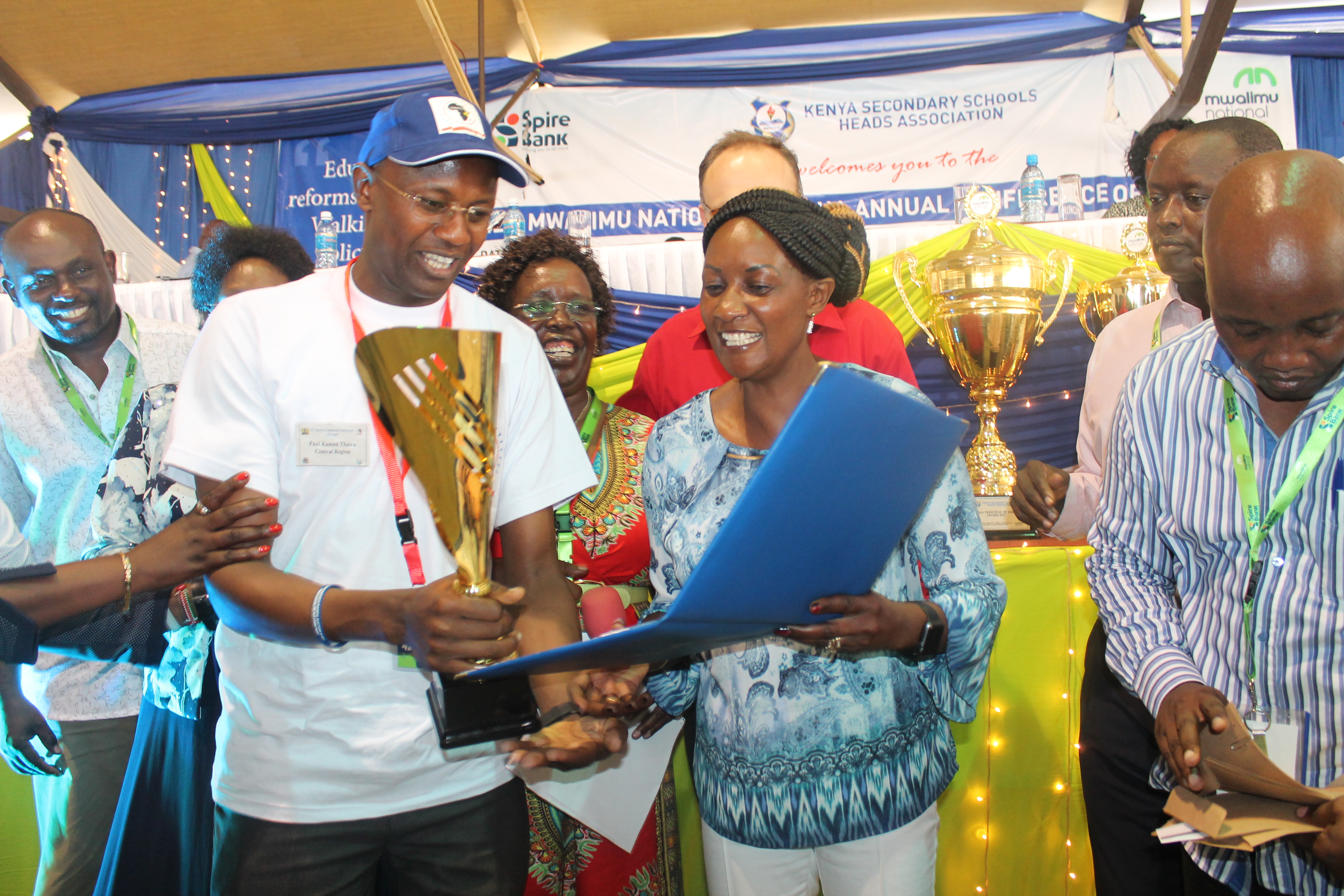
Mr. Paul Kamau Thairu, the Winner of i-TOYA, 2017
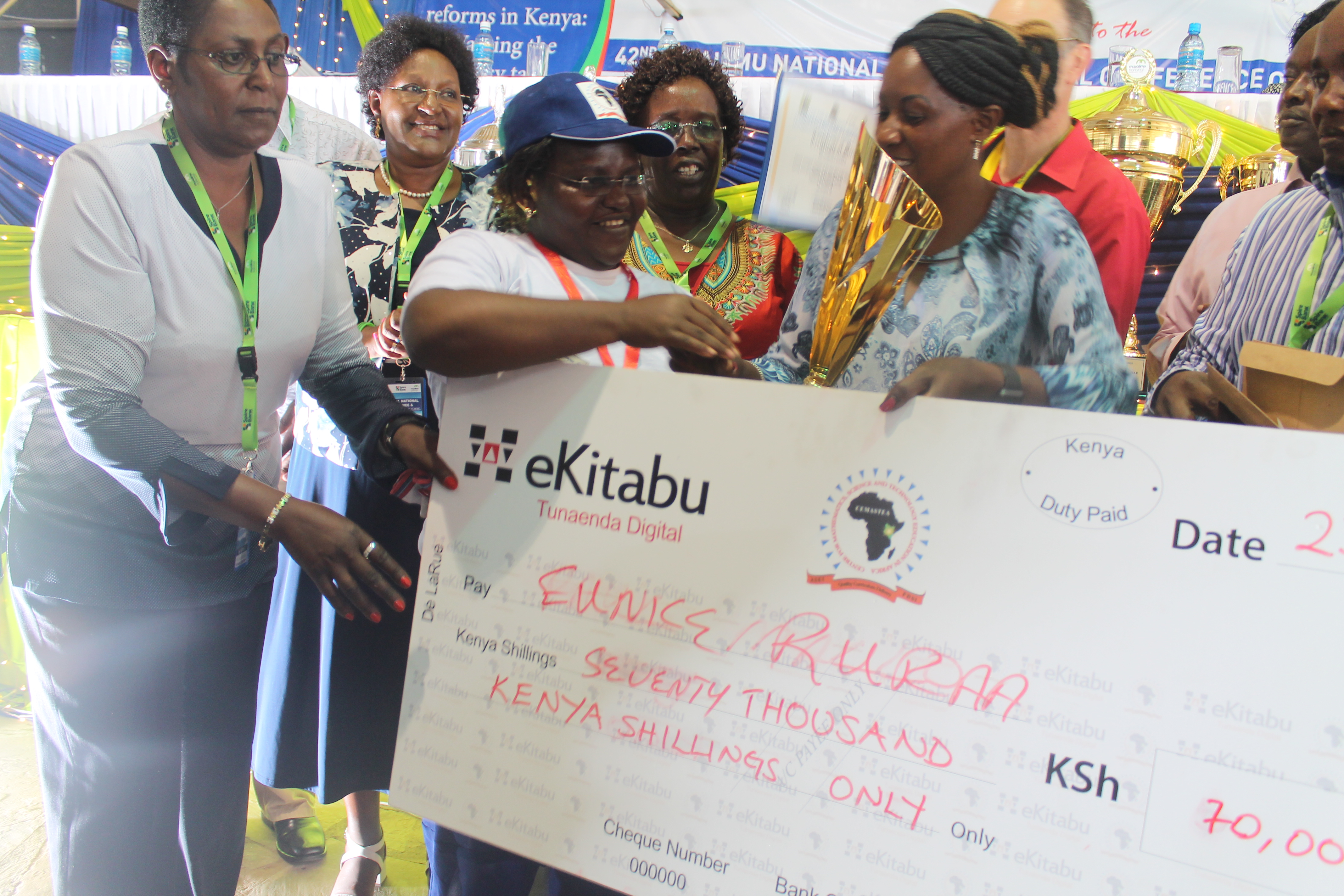
Ms. Eunice Ruraa, 1st Runners Up. Mr.Paul Mallo, 2nd Runners Up.
All the regional winners took home a Lenovo laptop, a gift bag and a regional trophy. The first i-TOYA 2017 competition started off very well and is planning for greater things years to come. Teachers are encouraged to register and participate for the upcoming i-TOYA 2018, and most of all to integrate ICT in their classroom.
i-TOYA 2017 Regional Finalist with Staff
The event started on the 19th to 23rd June 2017 at Wild Waters, Mombasa.
In the spirit of encouraging sharing innovations in schools, CEMASTEA supported three schools namely, Stephen Kositany Secondary School , Lenana High School and Garden Estate Secondary School. 
Mr Misoi Nicholas of Stephen Kositany Secondary School explaining to the Director CEMASTEA and other delegates how a Teaching Aid for the visually and hearing impaired in the topic; Trigonometric Ratios in Mathematics works.


An innovation demonstrating Bernauli’s Principle in Physics by Mr Anthony Nzuki of Lenana High School.

An innovation on Titration apparatus in Chemistry. A presentation by Garden Estate Secondary School.

The Director, CEMASTEA and some members of staff listening to a Physics video presentation on improvised activities in Electrostatics
Other CEMASTEA Innovations include:
Branding in Chemistry; Preservation of Veins in Plants (Biology);Clip Motor in Physics; Patterns and 3-D models in Mathematics .


The Centre for Mathematics, Science and Technology education (CEMASTEA) conducted a study to understand the process of selection of science subjects (i.e., biology, chemistry and physics) at Kenya Certificate of Secondary Education (KCSE) and factors influencing the selection in one of the counties in Kenya. The study involved principals of selected schools in the county, careers' masters and mistresses in the schools as well as science teachers and Form Three students. A total of 23 principals, 23 careers masters/mistress, 70 science teachers and 1081 Form Three students participated in the study. Data were collected from teachers and students through questionnaires and one-one interviews with principals and careers masters/mistress.
The findings of the study showed that:
- All the students who participated in this study take chemistry, 85% take biology and only 38% take physics. These findings are consistent with the statistics available from the Kenya National Examination Council (KNEC) on the candidature in these subjects. In most of the schools, students were not given opportunities to decide the science subjects to study. Rather, the subjects were taken based on what most principals and careers masters/mistresses referred to as "school policies" bluntly stated, "chemistry is compulsory in this school" or "chemistry and biology are compulsory" . Such “policies” left students with no option but abide.
- In some of the schools, students were asked to take no more than two science subjects. This was ensured through timetabling where two of the science subjects (i.e., biology and physics) were taught at the same time thereby inhibiting students from taking both subjects. Indeed, five schools were found not to have presented any candidates in physics at KCSE in 2-3 years preceding this study even when they had presented candidates in other subjects. Further examination of the data revealed that the students preferred to be left to decide the science subjects they would like to study and even some yearned for opportunities to study more than two science subjects where they were limited to taking only two science subjects.
- A number of factors were found to be influencing some schools to navigate away from physics as follows:
- Careers- most principals and careers masters stated that careers in science-related fields require chemistry.
- Resources- in some schools, inadequate resources especially laboratories, equipment and materials were cited as reasons for fewer students in physics.
- Personnel especially teachers- in terms of number and personal characteristics. For example, it was noted that some teachers discouraged students from taking physics.
- Performance in mathematics and physics- in some schools, it was noted that if students were perceived to be performing poorly in physics and/or mathematics, they would not be allowed to take physics.
These findings have implications for the attainment of goals of science and by extension Vision 2030. The low enrolment of students in physics may mean that the ability of some students to understand the natural world involving ideas in physics is greatly hampered. Consequently, getting a critical mass of human capital with sound understanding of physics concepts which, is requisite to economic and technological development, is negatively affected.
To mitigate this challenge, the Ministry of Education (MOE), needs to put in place a mechanism for sustained monitoring of schools for purposes of determining the level of implementation of MOE guidelines on selection of science subjects. In addition, CEMASTEA needs to sensitise science teachers and principals on their role in guiding students in the selection of science subjects. The MOE and/or BOM as is appropriate need to provide adequate resources to schools to enhance effective teaching and learning of all science subjects.
